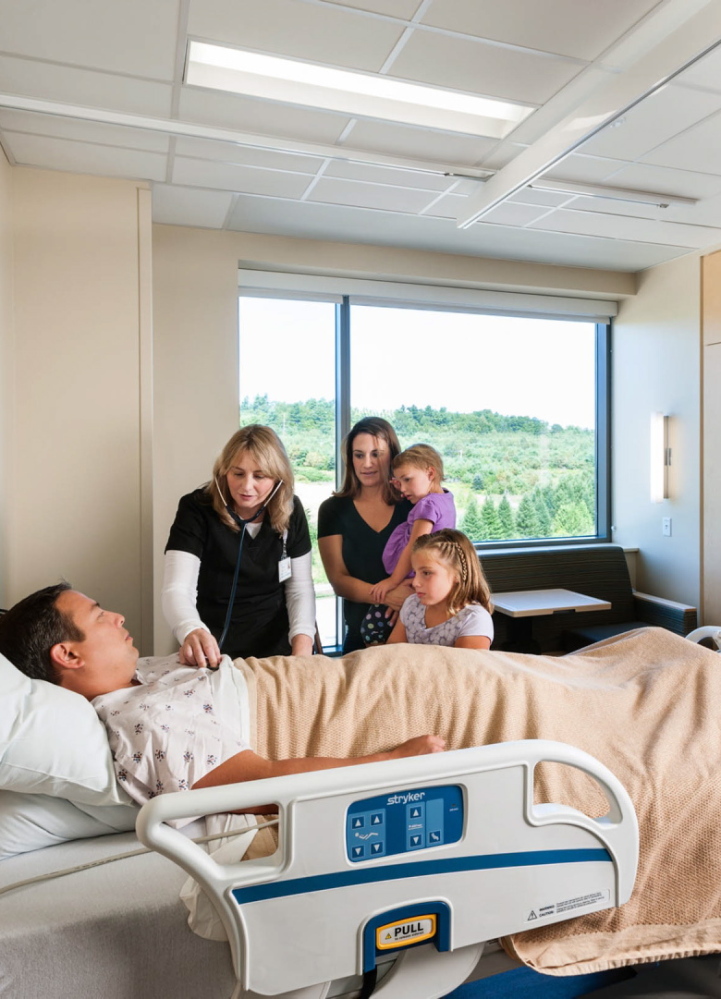With recent analyses showing that hospital medical errors represent the third leading cause of death, after cardiovascular disease and cancer, many are asking “Why?” as well as “What can hospitalized patients do to protect themselves?”
Like most large public health problems, medical errors have many contributing factors, and, therefore, many solutions.
At the University of New England, we are tackling a leading root cause of medical errors – poor health care teamwork.
By educating and training our medical students alongside nursing, pharmacy, dental, social work and physician assistant students – an approach called interprofessional education – we are making sure they learn as a team from the outset.
We would not expect pitchers and catchers to train separately, then play baseball successfully. So why would we expect doctors and nurses to train separately, and then work effectively as a team?
Interprofessional education is transforming health teams, especially tomorrow’s, but what if you or your loved one is hospitalized today? Here are seven pieces of advice based on studies of medical errors.
• Bedside advocates: Family members or close friends should stay by the bedside for at least two-hour shifts several times per day and serve as a patient advocate, by observing the patient’s condition, monitoring the care, noting medications, procedures and tests administered, and, most importantly, asking questions.
Often health professionals are reluctant to share information because of HIPAA, the federal privacy regulation. However, there are several ways to ensure adequate communication, and they can be found in this federal guide: “A Patient’s Guide to the HIPAA Privacy Rule: When Health Care Providers May Communicate About You with Your Family, Friends, or Others Involved In Your Care.”
• Bedside notebook: Maintain a notebook by the bedside in which the patient and advocates keep notes on the patient’s condition (including general mood, level of wakefulness and signs of confusion); what care was delivered (such as procedures); medications listed from the medical record and administered (including dose and frequency); tests administered and their results (or when their results are expected); answers to any questions, and the general care plan (next steps and estimated discharge date).
• Hand washing: Be the hand washing police. Make sure everyone (visitors and health professionals) who enters the room washes their hands (which can be with hand gel), even if they are not directly touching the patient.
• Monitor medications: Match the list of medications in the notebook with that which is administered, and if there is a difference, ask if there have been changes and why.
• Drains, IVs, catheters, tubes: Ask at least daily about the length of time that any drains, intravenous lines, urinary catheters, intubation tubes or other such pieces of equipment are expected to remain in the patient’s body, and why they must remain there. For instance, urinary catheters left in too long after surgery can cause a urinary infection that can spread to the blood.
• Safety ratings: If you have a choice of hospitals, check on their safety rating. My favorite, because of its long track record and comprehensiveness is that from The Leapfrog Group. Keep in mind that even if your hospital is among the safest in the nation, all of these suggestions can help improve communication and care.
• Patient-centered teams: Make sure the patient, and, when appropriate, the advocates, are included as members of the health care team. For instance, you should be able to: look at your medical records (and ask if the hospital has something called OpenNotes, which allows patients to see the clinical notes written by their doctors and nurses); participate in rounds (when doctors, nurses and others meet to discuss a patient’s care, often done at the bedside or just outside the room), and feel free to ask questions.
For more tips, see Campaign Zero.
What if you experience difficulties? Ask to speak to the nurse or physician in charge of your care, the nurse manager or the hospital’s patient advocate (sometimes known as the patient services consultant).
After discharge, make sure to complete a satisfaction survey. The most common one is the HCAHPS survey that is required by the federal government and is sent to a sample of patients within several days of discharge from the hospital.
Additionally, you can write your concerns and send them to the hospital’s administration.
Although the causes and solutions to medical errors are many and complex, we know that patients and their loved ones, as members of an interprofessional health team, can play a critical role in preventing many errors.
Send questions/comments to the editors.



Success. Please wait for the page to reload. If the page does not reload within 5 seconds, please refresh the page.
Enter your email and password to access comments.
Hi, to comment on stories you must . This profile is in addition to your subscription and website login.
Already have a commenting profile? .
Invalid username/password.
Please check your email to confirm and complete your registration.
Only subscribers are eligible to post comments. Please subscribe or login first for digital access. Here’s why.
Use the form below to reset your password. When you've submitted your account email, we will send an email with a reset code.